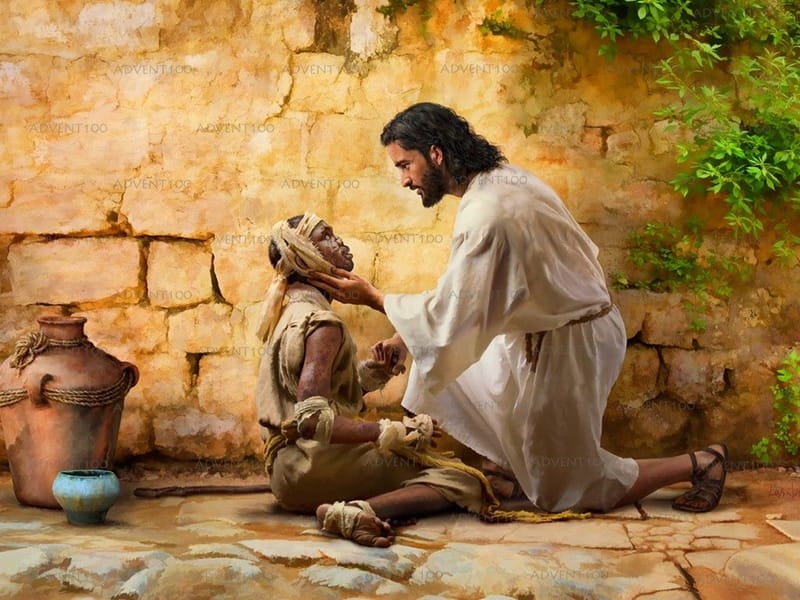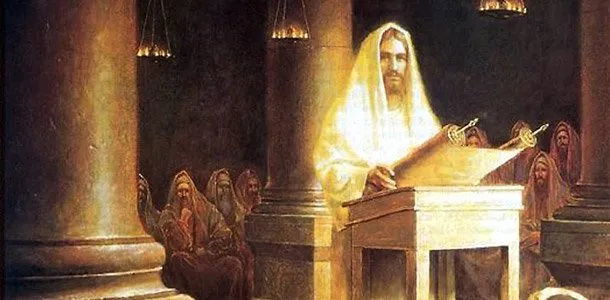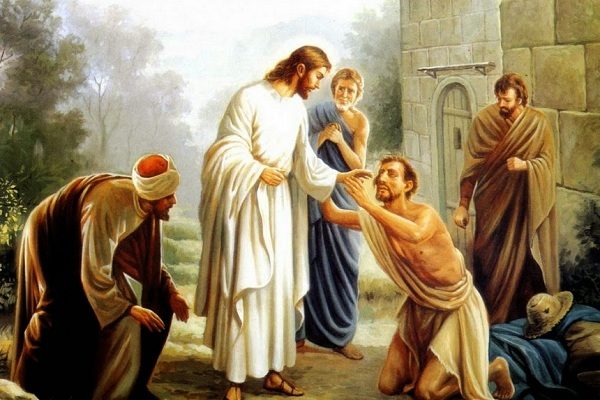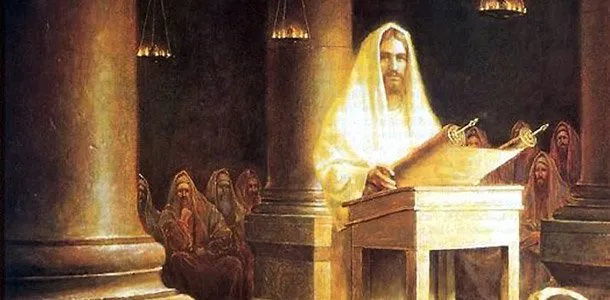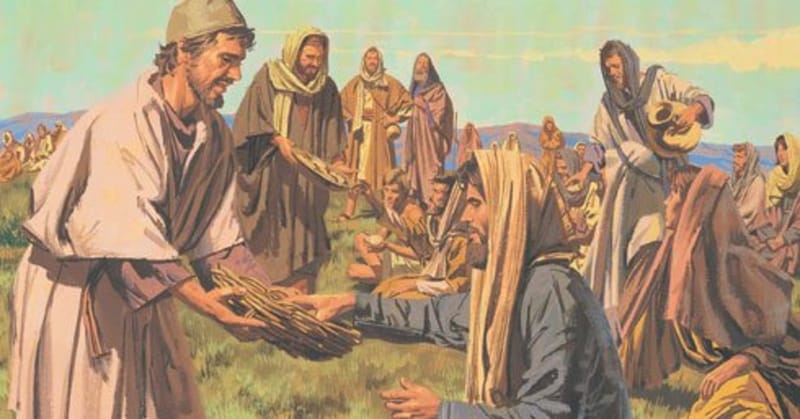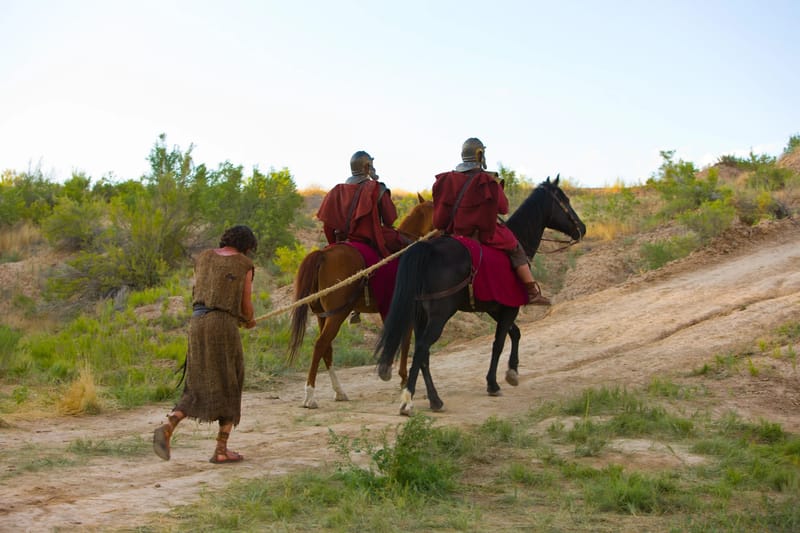DAILY HOMILIES
The failure of the scribes and Pharisees to see that God was in their midst despite their familiarity with the scriptures goes to prove the point of today’s first reading: “For indeed the good news came to us just as to them; but the message they heard did not benefit them, because they were not united by faith with those who listened.” (Hebrews 4:2).
Read MoreEmpathy is the first step to healing, but it is not enough. Go beyond words such as: “Sorry, oh. It is well you.” Do whatever is within your power to do. It might seem small compared to the person’s problem, but it would mean the world to them. Sometimes, we underestimate ourselves. What makes you think your prayers cannot heal the sick? With just five loaves and two fish, over five thousand people were fed. Even for someone looking for a million naira, ten naira is something. You might not even have ten naira, but you might know how to connect them to someone who has.
Read MoreWe must consciously reach out to the sick, the oppressed, those held captive, those who do not yet believe in God, and those who are passing through some difficulty or another. With faith, we can lay our hands on people, talk to them, and preach to them, and we would be surprised at the outcome. A Christian who never reaches out to others is a Christian who is ignorant of what he or she has within.
Read MoreChild of God, you have no reason to be afraid of the devil or persons possessed with demonic spirits. God has put all things under your feet. You are a child of God; you did not receive the spirit of timidity. He that is in you is greater than any power on earth. Never look down on yourself. You are so powerful that your very presence is a threat to demons. “What have you to do with us, Jesus of Nazareth? Have you come to destroy us? I know who you are, the Holy One of God.”
Read MoreWhat have you left behind to follow Jesus? In other words, what is the cost of your discipleship? What do you have to let go to remain a Christian? If truly you have not left anything behind, it means your faith is a matter of convenience. The danger in this is that you could easily fall away in moments of trials. This explains why some Christians move from one “solution house” to another, not minding if they partake in idol worship. Christianity is not only about what we stand to gain from God; it is about carrying our crosses and following Jesus’ footsteps.
Read MoreToday’s feast, the baptism of Jesus, marks the second significant moment of the revelation of Jesus’ divinity. Luke reports: “When Jesus also had been baptised and was praying, the heaven was opened, and the Holy Spirit descended upon him in bodily form, as a dove, and a voice came from heaven, ‘Thou art my beloved Son; with thee, I am well pleased.’” (Luke 3:21-22). All those present at the baptism of Jesus saw the dove and heard the voice from heaven. Like the Magi, they must have fallen on their faces to worship Jesus when they saw this mighty display of God.
Read MoreThose who told John the Baptist that Jesus was now baptising were hoping it would make John the Baptist sad or bring about some form of competition, but to their amazement, John the Baptist was pleased to hear it. Whatever you do for your church, whether financially or physically, should never be about competition. It should never be to promote your name or your business; it should only be about increasing God’s kingdom.
Read MoreAfter listening to the leper’s prayer, Jesus stretched out his hand and touched him, saying: “I will, be clean.” In other words, I desire your healing. I want you to be strong and healthy. Sickness, pain and misery do not glorify God. Avoid concluding that God does not care about your condition or that God is punishing you for your sins. Regardless of what you are going through, God only desires the best for you. “For I know the plans I have for you, says the Lord, plans for welfare and not for evil, to give you a future and a hope.” (Jeremiah 29:11)
Read MoreSome Christians say: “I just want to serve God and mind my business. I don’t need anybody. Let everyone be on their own.” Are we serving God when we are indifferent to the problems others are facing around us? In Luke 10:25-36, Jesus told the story of a man who was robbed and beaten to a pulp while travelling alone. A priest and a Levite saw this man half-dead and continued their way, but a Samaritan stopped, took him to an inn and treated his wounds. Which of these three worshipped God?
Read MoreWhen we face troubles, challenges and difficulties, when things do not go as we planned, when we are tossed from all sides by the waves of disappointments, falsehood, failures, betrayals, setbacks, etc., we tend to ask questions such as, “God, where are you?” “Why me?” “Why this?” and “Why that?” Today, God says: “Even in your troubles, I am still with you.”
Read MoreThe next time you utter these words: “I love you”, make sure your definition of love aligns with what St. John describes in today’s first reading. Be sure that you are ready to die for this person, even if all you get back is hatred. On the other hand, if your definition of love is: “I want you” or “I want what you have”, you are only deceiving yourself.
Read MoreTo fill their churches, many preachers say: “God loves you as you are. Come the way you are.” This is why people now dress half-naked to church, and ushers now look like ladies working in nightclubs. This is why secular artists have taken over the music departments of our churches. Darkness and light cannot coexist. We cannot have darkness within us and claim fellowship with God. Don’t come as you are – change! Change to something better; you are coming into the King’s presence! This is not a social gathering. You are not here to sell your body. You are here to worship God.
Read More
